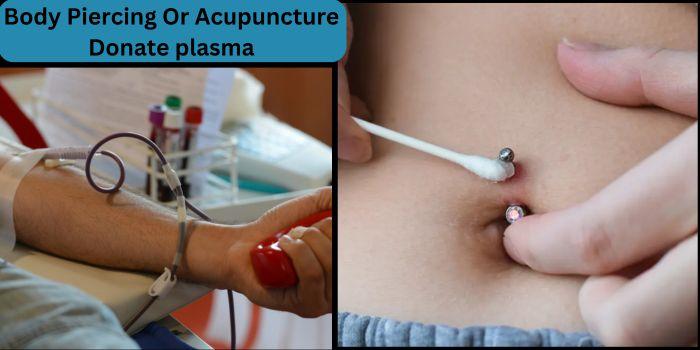Introduction:
In today’s fast-paced world, the pursuit of happiness has become a universal quest. From ancient philosophical teachings to modern scientific research, understanding the nature of happiness and its impact on our well-being has captivated human curiosity for centuries. In recent years, a growing body of scientific evidence has shed light on the profound ways in which positive emotions influence both our physical and mental health. This article delves into the fascinating realm of the science of happiness, exploring how cultivating positive emotions can lead to a happier, healthier life.
The Link Between Positive Emotions and Health:
Numerous studies have demonstrated a strong correlation between positive emotions and overall health and longevity. Research conducted by renowned psychologist Dr. Ed Diener and his colleagues has consistently shown that individuals with a more positive outlook on life tend to have better physical health outcomes, including lower rates of chronic illnesses such as heart disease and hypertension. Furthermore, they have been found to live longer lives compared to their less optimistic counterparts.
One of the key mechanisms through which positive emotions exert their beneficial effects on health is by reducing the body’s stress response. Chronic stress has been implicated in a wide range of health problems, from weakened immune function to increased inflammation, which is linked to conditions such as arthritis and diabetes. Positive emotions, on the other hand, have been shown to counteract the physiological effects of stress, promoting relaxation and enhancing the body’s resilience to adversity.
Moreover, research in the field of psychoneuroimmunology has revealed the intricate connections between the mind and the immune system. Studies have demonstrated that positive emotions can boost the activity of immune cells, thereby enhancing the body’s ability to fight off infections and diseases. In essence, cultivating a positive emotional state can bolster the body’s natural defense mechanisms, leading to improved overall health and well-being.
Mental Health Benefits of Positive Emotions:
In addition to its effects on physical health, positive emotions play a crucial role in promoting mental well-being. Numerous studies have shown that individuals who experience frequent positive emotions are less likely to develop mood disorders such as depression and anxiety. Moreover, even in the face of adversity, maintaining a positive outlook can serve as a protective factor against the development of psychological distress.
One of the key contributors to the mental health benefits of positive emotions is their role in promoting resilience. Resilience refers to the ability to bounce back from setbacks and challenges, and research has shown that individuals who experience positive emotions on a regular basis are better equipped to cope with stress and adversity. By fostering a sense of optimism and hope, positive emotions provide a buffer against the negative effects of life’s inevitable ups and downs.
Furthermore, positive emotions have been found to enhance cognitive function and creativity. Studies have shown that individuals in a positive mood state demonstrate improved problem-solving abilities, greater cognitive flexibility, and enhanced creativity compared to those in a neutral or negative mood. This suggests that cultivating positive emotions not only contributes to emotional well-being but also enhances cognitive performance, leading to greater overall success and fulfillment in life.
Practical Strategies for Cultivating Happiness:
Given the profound impact of positive emotions on health and well-being, cultivating happiness becomes a worthwhile endeavor. Fortunately, there are many evidence-based strategies that individuals can incorporate into their daily lives to promote positivity and enhance their overall happiness.
One such strategy is practicing gratitude. Research has shown that regularly expressing gratitude can lead to significant improvements in mood and well-being. Whether through journaling, reflecting on blessings, or expressing appreciation to others, cultivating an attitude of gratitude can foster a sense of abundance and contentment.
Engaging in acts of kindness is another powerful way to boost happiness levels. Studies have demonstrated that performing acts of kindness, whether small gestures or larger altruistic deeds, can increase feelings of happiness and fulfillment. Acts of kindness not only benefit others but also contribute to a sense of connection and purpose, which are essential components of happiness.
Mindfulness meditation is another effective tool for promoting happiness and well-being. By cultivating present-moment awareness and nonjudgmental acceptance, mindfulness practice can help individuals reduce stress, enhance emotional resilience, and cultivate a greater sense of inner peace and contentment.
In addition to these strategies, engaging in activities that bring joy and fulfillment, such as pursuing hobbies, spending time with loved ones, and connecting with nature, can also contribute to overall happiness and well-being. By prioritizing activities that nourish the soul and foster positive emotions, individuals can create a life filled with meaning, purpose, and joy.
Conclusion:
The science of happiness offers compelling insights into the profound ways in which positive emotions impact both physical and mental health. From reducing stress and boosting immune function to enhancing resilience and promoting overall well-being, cultivating happiness is essential for leading a fulfilling and satisfying life. By incorporating evidence-based strategies for promoting positivity into our daily lives, we can harness the transformative power of positive emotions and create a happier, healthier future for ourselves and those around us.





